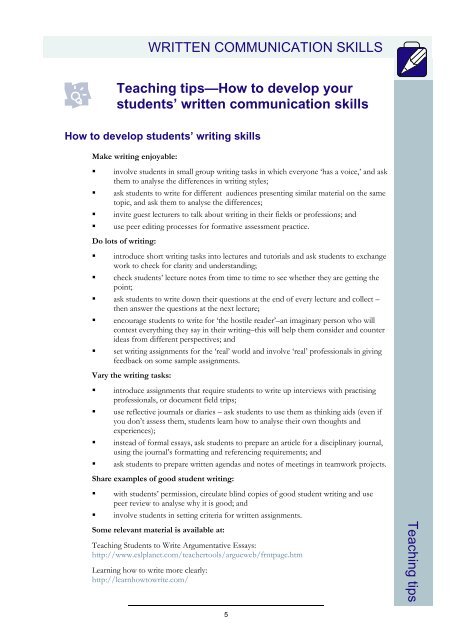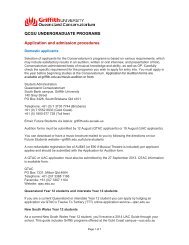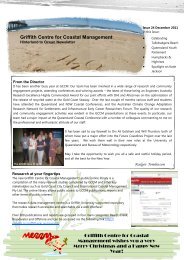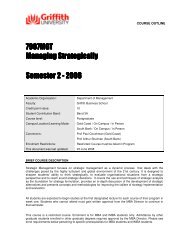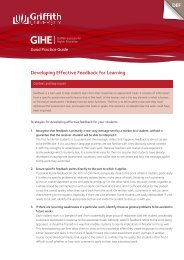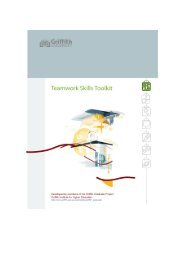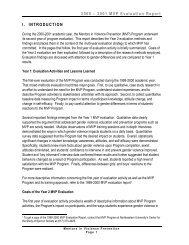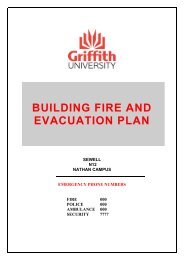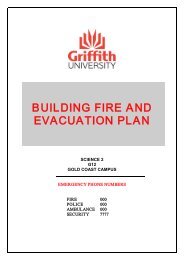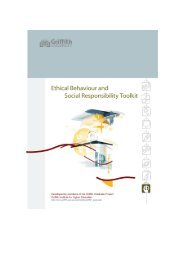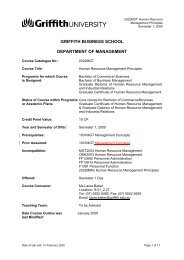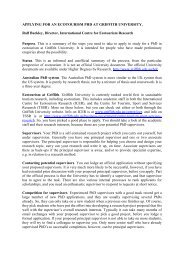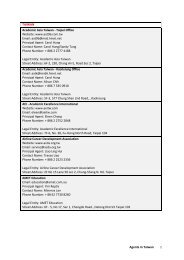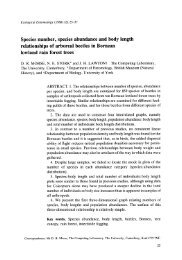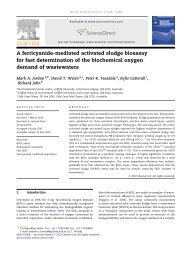Purpose of this Toolkit - Griffith University
Purpose of this Toolkit - Griffith University
Purpose of this Toolkit - Griffith University
Create successful ePaper yourself
Turn your PDF publications into a flip-book with our unique Google optimized e-Paper software.
WRITTEN COMMUNICATION SKILLS<br />
Teaching tips—How to develop your<br />
students’ written communication skills<br />
How to develop students’ writing skills<br />
Make writing enjoyable:<br />
• involve students in small group writing tasks in which everyone ‘has a voice,’ and ask<br />
them to analyse the differences in writing styles;<br />
• ask students to write for different audiences presenting similar material on the same<br />
topic, and ask them to analyse the differences;<br />
• invite guest lecturers to talk about writing in their fields or pr<strong>of</strong>essions; and<br />
• use peer editing processes for formative assessment practice.<br />
Do lots <strong>of</strong> writing:<br />
• introduce short writing tasks into lectures and tutorials and ask students to exchange<br />
work to check for clarity and understanding;<br />
• check students’ lecture notes from time to time to see whether they are getting the<br />
point;<br />
• ask students to write down their questions at the end <strong>of</strong> every lecture and collect –<br />
then answer the questions at the next lecture;<br />
• encourage students to write for ‘the hostile reader’–an imaginary person who will<br />
contest everything they say in their writing–<strong>this</strong> will help them consider and counter<br />
ideas from different perspectives; and<br />
• set writing assignments for the ‘real’ world and involve ‘real’ pr<strong>of</strong>essionals in giving<br />
feedback on some sample assignments.<br />
Vary the writing tasks:<br />
• introduce assignments that require students to write up interviews with practising<br />
pr<strong>of</strong>essionals, or document field trips;<br />
• use reflective journals or diaries – ask students to use them as thinking aids (even if<br />
you don’t assess them, students learn how to analyse their own thoughts and<br />
experiences);<br />
• instead <strong>of</strong> formal essays, ask students to prepare an article for a disciplinary journal,<br />
using the journal’s formatting and referencing requirements; and<br />
• ask students to prepare written agendas and notes <strong>of</strong> meetings in teamwork projects.<br />
Share examples <strong>of</strong> good student writing:<br />
• with students’ permission, circulate blind copies <strong>of</strong> good student writing and use<br />
peer review to analyse why it is good; and<br />
• involve students in setting criteria for written assignments.<br />
Some relevant material is available at:<br />
Teaching Students to Write Argumentative Essays:<br />
http://www.eslplanet.com/teachertools/argueweb/frntpage.htm<br />
Learning how to write more clearly:<br />
http://learnhowtowrite.com/<br />
Teaching tips<br />
5


